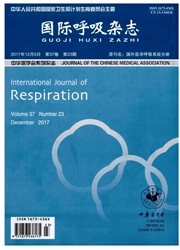
欢迎您!东篱公司
退出

 中文摘要:
中文摘要:
支气管哮喘(简称哮喘)是一种慢性气道炎症性疾病,其发病机制尚不完全清楚,目前认为与炎症机制、氧化应激、气道高反应性(airway hyperreactivity,AHR)等及其相互作用有关。内源性硫化氢是一种新型气体信号分子,多项研究证实其对哮喘的炎症、氧化应激及AHR均具有显著的抑制作用,可能会成为未来治疗的一个靶点分子。本文就硫化氢在哮喘发病机制中的作用作一综述。
 英文摘要:
英文摘要:
Bronchial asthma (asthma) is a chronic inflammatory disease of the airways. Its pathogenesis is not completely understood. It is thought to be related to inflammatory mechanism, oxidative stress, airway hyperreactivity and their interaction. Endogenous hydrogen sulfide is a novel gas signaling molecule. Several studies have shown that it has a significant inhibitory effect on inflammation, oxidative stress and AHR in asthma and may become a target molecule for future.
 同期刊论文项目
同期刊论文项目
 同项目期刊论文
同项目期刊论文
 期刊信息
期刊信息
